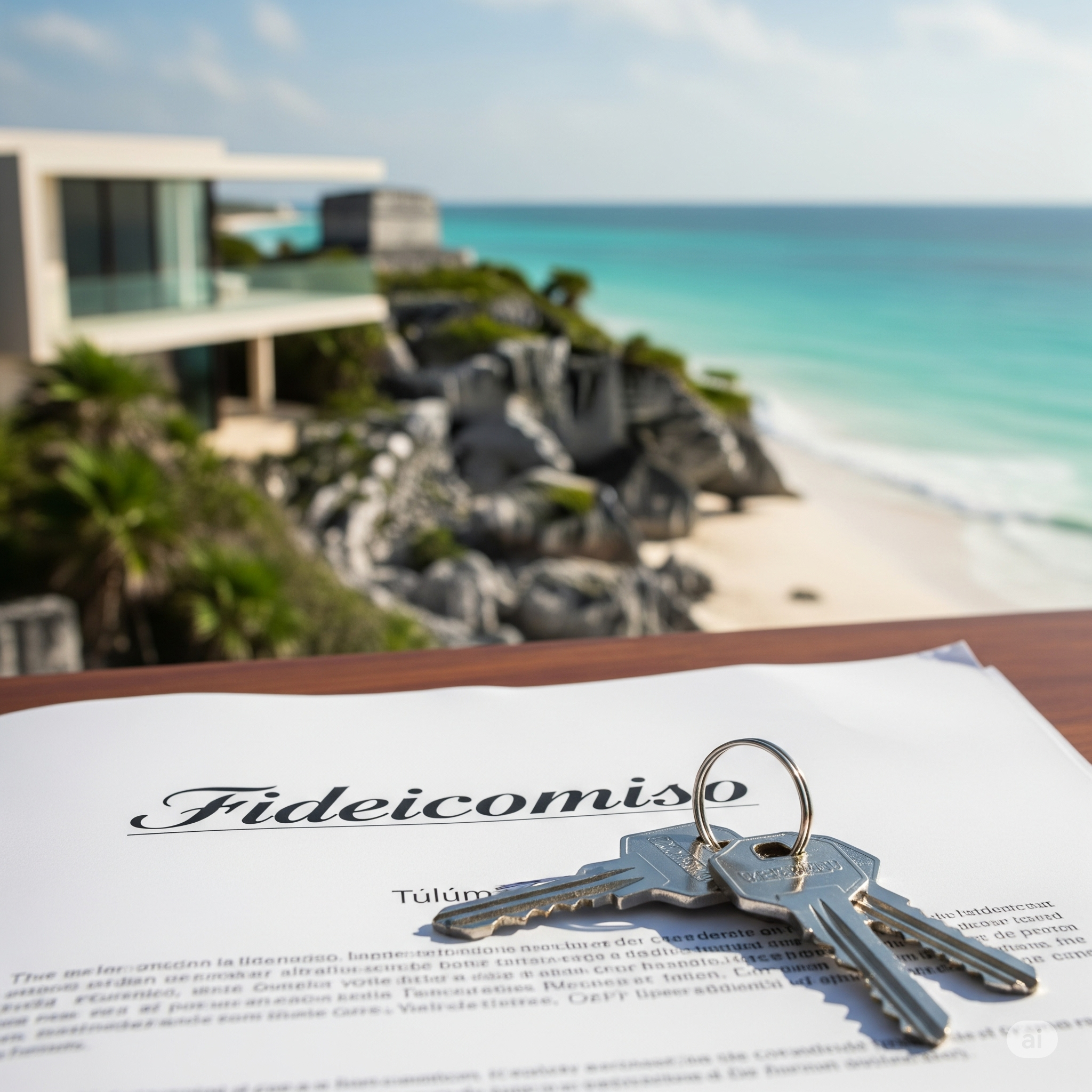Understanding the Fideicomiso is your key to securely owning property in coveted coastal areas like the Riviera Maya. This guide breaks down how foreigners can legally and safely invest in paradise.
Welcome, aspiring investor, to the sun-drenched shores of the Riviera Maya! The allure of turquoise waters and lush jungles has captivated hearts worldwide, making areas like Tulum, Playa del Carmen, and Mérida prime real-Ciasta for real estate investment. However, for foreign buyers, the path to ownership has a few unique, yet completely navigable, legal steps. One of the most crucial concepts to understand is the Fideicomiso (pronounced fee-deh-ee-coh-MEE-so), a legal tool that makes your dream of owning a slice of paradise a secure reality.
At PeninsuLawyers, we specialize in guiding international clients through these legal waters, ensuring every transaction is transparent and protected. While we primarily focus on dispute resolution, a core part of our mission is to empower you with knowledge before issues arise. This article will demystify the Fideicomiso for foreign buyers, explaining why it exists and how it works.
The “Restricted Zone”: Not as Restrictive as It Sounds
First, let’s address a key piece of Mexican law that makes the Fideicomiso necessary. The Mexican Constitution establishes a “Restricted Zone” (Zona Restringida) for national security reasons. This zone encompasses all land within 100 kilometers (about 62 miles) of international borders and 50 kilometers (about 31 miles) of any coastline. Given that the entire Riviera Maya falls squarely within this area, you might wonder if foreign ownership is even possible.
The answer is a resounding yes! Mexico warmly welcomes foreign investment. The law simply requires a specific legal structure for foreigners to hold residential property within this zone: the Fideicomiso.
What is a Fideicomiso? Your Secure Path to Property Ownership
A Fideicomiso is a bank trust, and it is the most common and secure method for foreign individuals to acquire residential real estate in the Restricted Zone. It is not a lease; it grants you, the buyer, all the rights of ownership.
Here’s how it works:
- The Parties Involved: The Fideicomiso involves three parties:
- You, the Buyer (Beneficiary): You are the beneficiary of the trust and have complete control over the property. You can live in it, rent it out, sell it, make improvements, and pass the rights on to your heirs.
- The Bank (Trustee): An authorized Mexican bank acts as the trustee. They hold the legal title to the property on your behalf, but their role is primarily to follow your instructions as the beneficiary.
- The Seller: The person or entity transferring the property into the trust.
- The Process: Setting up a Fideicomiso for foreign buyers is a standardized process handled by a Notary Public (Notario Público), a highly qualified legal professional who ensures the transaction’s legality. The bank, with the Notary’s help, will apply for a permit from the Ministry of Foreign Affairs (Secretaría de Relaciones Exteriores – SRE). Once the permit is granted, the Notary drafts the trust agreement and finalizes the registration of the property in the Public Registry. The entire process typically takes 2 to 3 months.
- Your Rights as a Beneficiary: As the beneficiary, you have the full rights and enjoyment of the property. You control its use, administration, and maintenance, and you are the sole recipient of any income derived from its sale. You can also name substitute beneficiaries in the trust agreement, ensuring a smooth inheritance process.
- Duration and Costs: A Fideicomiso is established for an initial term of 50 years and can be renewed indefinitely for subsequent 50-year periods, providing long-term security. The costs involved include a one-time setup fee (approx. $500 – $2,500 USD) and an annual fee paid to the bank (approx. $500 – $1,000 USD).
The Alternative: Forming a Mexican Corporation
Another way for foreigners to acquire property, even in the Restricted Zone, is by forming a Mexican corporation. This route is often more suitable for commercial ventures, like managing multiple rental properties. The most common corporate structures are the S.A. de C.V. (Stock Company) and the S. de R.L. de C.V. (Limited Liability Company).
Fideicomiso vs. Mexican Corporation:
| Feature | Fideicomiso | Mexican Corporation |
|---|---|---|
| Primary Use | Ideal for individual residential or vacation homes. | Better for business activities or holding multiple properties. |
| Complexity | More straightforward for simple ownership. | Involves more complex legal paperwork and ongoing compliance (accounting, annual reports). |
| Costs | Setup fees and annual bank fees. | Potentially higher setup costs and significant ongoing maintenance fees (accountant, filings). |
| Estate Planning | Simpler inheritance by naming beneficiaries directly in the trust. | Inheritance involves transferring corporate shares, which can have different tax implications. |
For most individuals seeking a personal vacation home or retirement property, the Fideicomiso for foreign buyers is the most direct and cost-effective solution.
A Quick Note on Taxes
When purchasing property, you will encounter a few key taxes. The most immediate is the Acquisition Tax (ISAI), a state-level tax paid by the buyer at closing, typically between 2% and 4% of the property’s value. You’ll also be responsible for an annual Property Tax (Predial), which is generally much lower than in the U.S. or Canada. Finally, while the sale of residential homes is generally exempt from Value Added Tax (IVA), it does apply to commercial constructions and professional service fees.
Navigating the nuances of property acquisition in Mexico requires knowledgeable and independent legal counsel. The Fideicomiso is a secure and well-established mechanism designed to protect your investment. Understanding how it functions is the first step toward confidently securing your piece of the Mexican Caribbean.
Facing a real estate dispute in the Riviera Maya? Don’t navigate it alone. Contact PeninsuLawyers to protect your investment and secure your property rights.



